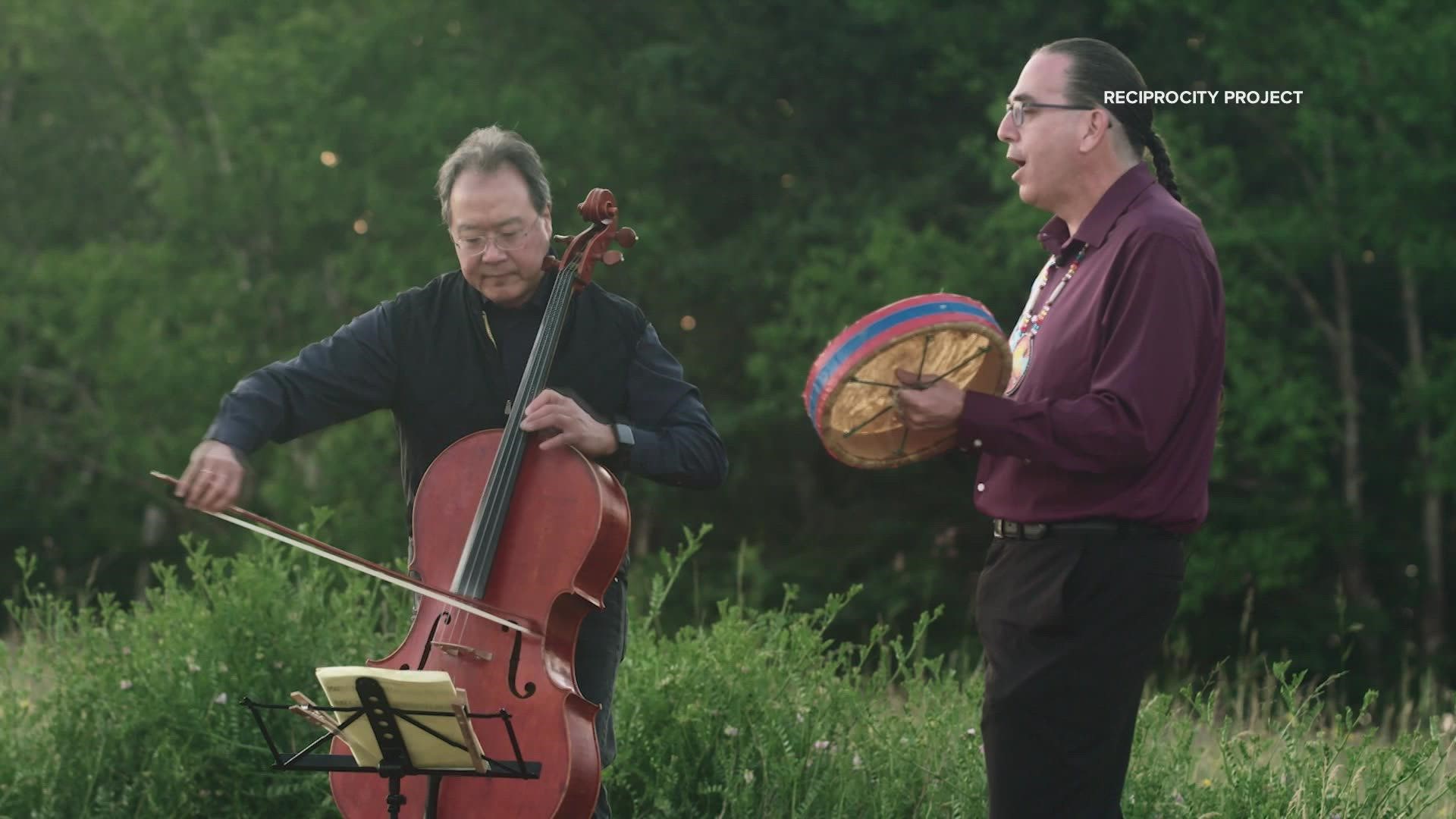PORTLAND, Maine — Chris Newell, a citizen of the Passamaquoddy Tribe and former director of a museum devoted to the history and culture of native people in Maine, was checking his email one day when something caught his eye.
“I read the subject line: From the Office of Yo-Yo Ma,” Newell recalls. “I immediately thought, what kind of spam is this?”
The email was not a scam.
Ma, perhaps the most renowned classical musician in the U.S., was reaching out. One thing led to another, and he ended up performing with Newell in a ceremony on Schoodic Point in Washington County, in which the Wabanaki people show gratitude to the rising sun through stories and ceremony. The event is rooted in a tradition that goes back hundreds of years, long before Europeans first came to Maine, and its message of living in harmony with the earth resonates in this time of climate change.
What happened that morning has been turned into a short documentary called “Weckuwapok (The Approaching Dawn).” The film features narration from Roger Paul, a storyteller who speaks in Passamaquoddy — no English is heard for the first few minutes — and music provided by Wabanaki singers and instrumentalists, at times accompanied on the cello by Ma.
“We didn’t intend to make a film,” Newell said, and it came as a surprise to be added to a series of documentaries made by Indigenous people for what’s called the Reciprocity Project. The aim of the series is to amplify Indigenous voices in a way that seldom happens.
“There’s a lot for Wabanaki people to teach [about sustainability],” Newell said. “I think that was probably the overwhelming feeling that came out, especially from non-Wabanaki participants, is how much they actually have to learn from us still and how much value we give to these conversations about climate change.”
Newell and Lauren Stevens, a Passamaquoddy citizen who sings in the movie, are both pleased with the way it came out. When she saw the film for the first time, Stevens was “overwhelmed with emotion.”
She says she was struck by “how beautiful it was to have Indigenous and non-Indigenous people be part of a conversation, a conversation that needed to be held long before now. … This was the first step of many, and the right direction for healing.”

